Industry 4.0 Create New Production and Profession Efficiency
By : Herry Barus And Aldi Firhand. A | Tuesday, April 17 2018 - 22:51 IWST
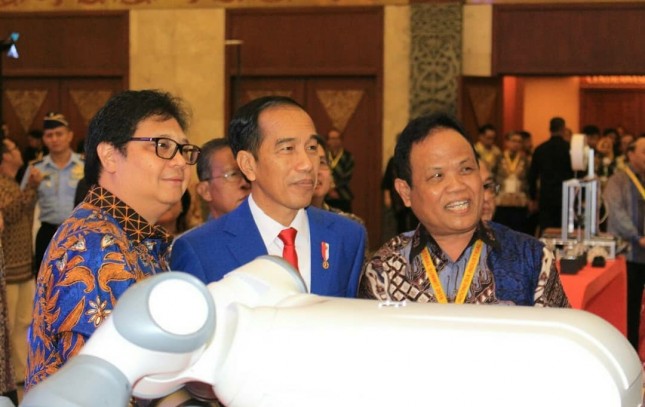
Menperin airlangga with president jokowi in roadmap industry 4.0 event
INDUSTRY.co.id - Jakarta - Implementation of Industry 4.0 will bring some paradigm shifts, whether it be work, manufacturing process, human resource skills needed, and how to consume.
For that, through Making Indonesia 4.0 roadmap, Indonesia has set a number of strategies to be ready and able to deal with the impact of the fourth industrial revolution.
"In principle, entering the era of the fourth industrial revolution, the changes brought about are the highest efficiency improvements in each stage of the industrial process value chain," said Minister of Industry Airlangga Hartarto as a resource person at the West Merdeka Barat 9 Forum on Monday (16 / 4/2018).
According to Minister, every stage of manufacturing in the digital era today, should produce high added value. If not, then the stages must be removed.
"So that in the era of Industry 4.0 has a value chain that is slim-slender with the increase in value-added products as high and with better quality," he said.
In every stage of industrial revolution from the first to the present have different challenges and impacts. The first industrial revolution of the 18th century, marked by the invention of steam engines for efforts to increase high value added productivity. For example in England, then, weaving companies used steam engines to produce textile products.
"But in Indonesia, there are still some who use non-machine looms (ATBM), and in clove cigarettes companies still use hand-rolled machines, so it uses labor-intensive technology The government has the alignment to protect technology , especially to absorb labor, "he explained.
In the second industrial revolution in the 1900s, marked by the discovery of electric power. According to minister, in this economic phase, some industries in Indonesia experienced significant growth, such as agriculture and mining sector. "So, this second revolution is related to technology in the production line," he explained.
Then, in the era of the third industrial revolution, when automation was done in the 1970s or 1990s to date because some are still running. "So at the time of entering the third industrial revolution, the absorption of manpower in the industry is different, so we distinguish there is an intensive labor industry group," Airlangga said.
In the fourth industrial revolution, Minister of Industry conveyed, machine and human efficiency have to connect with internet of things. "We're talking automation based on data and the internet, and this is done in Industrial era 4.0 In the past, in manufacturing, producers and consumers are separated, but now, it allows co-creation between buyers and producers who can grow micromanufacturing, "he added.
Airlangga also explained that the difference between the application of Industry 3.0 and Industry 4.0 is the driving factor. Industry 3.0 is driven by profit, while 4.0 is driven more by price and cost. "The difference between Industry 3.0 and 4.0 is its value chain, many of the products from the cost of course lead to value added and supply chain," he explained.
In addition, Boston Consulting Group's study of industry in Germany shows that labor demand will increase significantly in R & D segment and software development up to 96%.
"Then, there will be a demand for new types of work compatible with the Industrial 4.0 system, among which is the industrial data scientist profession and much more," he said.
Projected, some new work related to the development of internet of things, such as professional triber, cloud architect, industrial network engineer, machine learning scientist, platform developer, virtual reality design, remote health care, robotics specialist, and cyber security analyst.
Read Also
Today's Industry
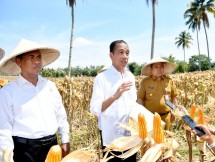
Selasa, 23 April 2024 - 10:29 WIB
President Jokowi Reaffirms Commitment to Farmers’ Welfare
President Joko “Jokowi” Widodo on Monday (04/22) inspected corn harvest in Boalemo regency, Gorontalo province. “Our corn import has decreased significantly from 3.5 million tonnes to…

Rabu, 28 Februari 2024 - 12:47 WIB
Carsurin and NBRI Strengthen Strategic Alliance to Propel Indonesia’s EV Industry
PT Carsurin Tbk ("Carsurin") and the National Battery Research Institute ("NBRI") are pleased to announce the signing of a pivotal Strategic Alliance Agreement (SAA), marking a significant advancement…
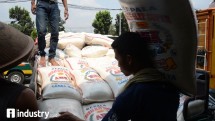
Rabu, 21 Februari 2024 - 08:43 WIB
Gov’t to Continue Disbursing Rice Assistance
President Joko “Jokowi” Widodo has ensured that the Government will continue rolling out the rice assistance program for low-income families. The President made the statement when handing…

Rabu, 21 Februari 2024 - 08:40 WIB
Bapanas Head Ensures Availability of Rice Stock Ahead of Ramadan
The National Food Agency (Bapanas) has ensured the availability of rice for the fasting month of Ramadan and Eid al-Fitr 1445 Hijri/2024 CE. “We believe that there is enough rice for the fasting…
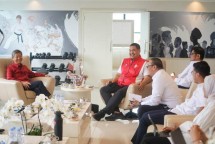
Rabu, 21 Februari 2024 - 08:23 WIB
Receives Chairman of Jababeka (KIJA), Menpora Dito Ready to Support the Development of Sports SEZs
Chairman of PT Jababeka Tbk (KIJA), Setyono Djuandi Darmono met the Minister of Youth and Sports of the Republic of Indonesia (Menpora RI) Dito Ariotedjo at the Kemenpora RI Office, Senayan,…






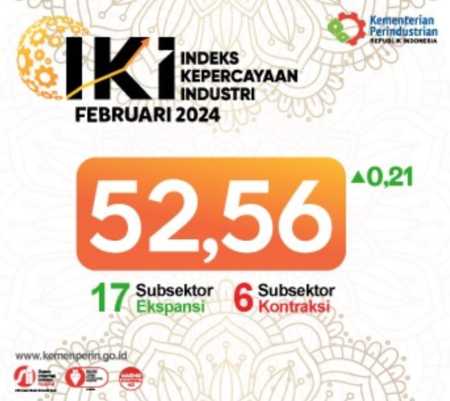

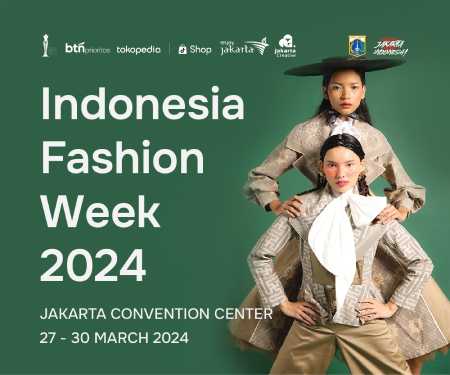







News Comment